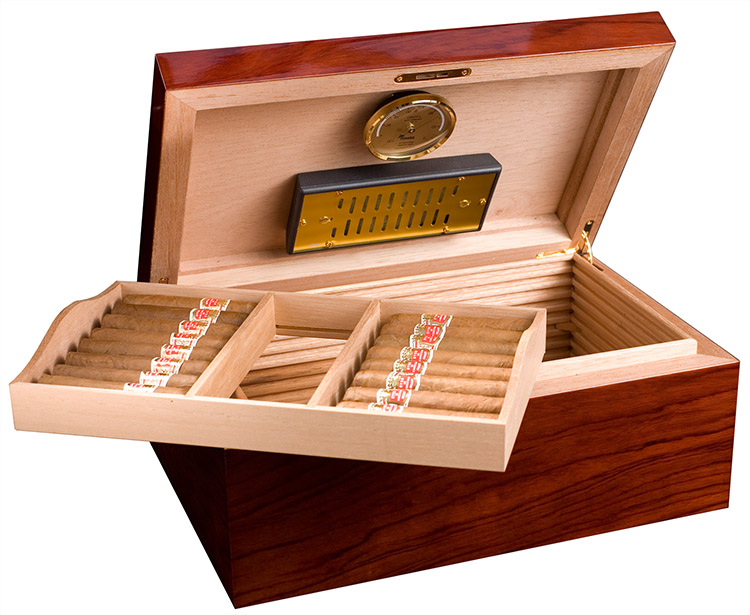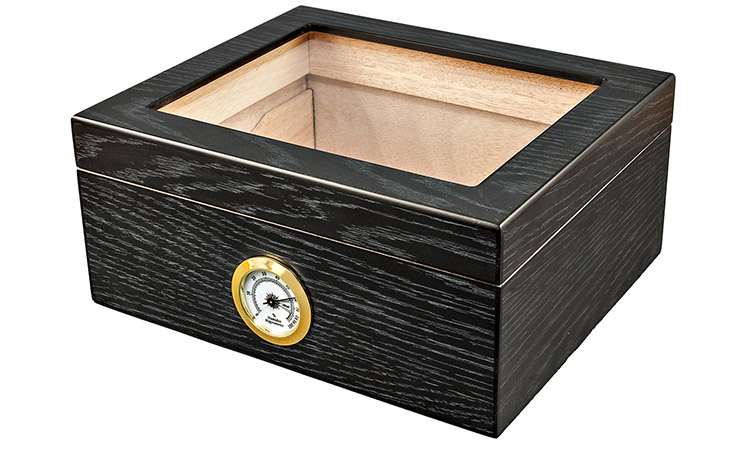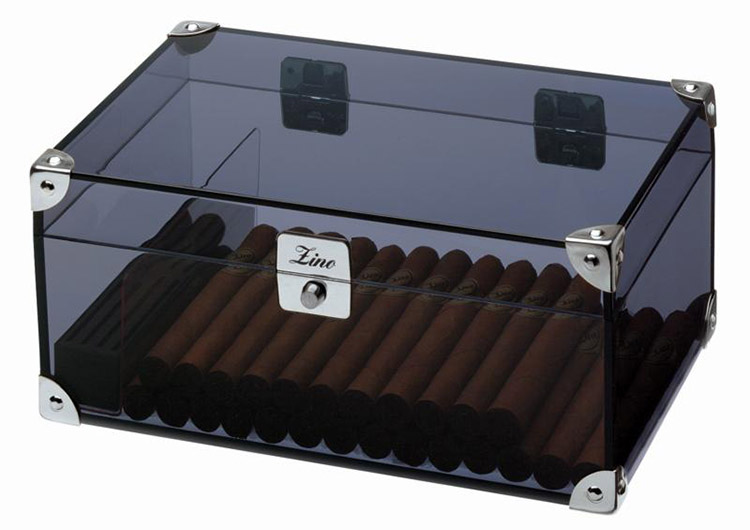The humidor is something capable of maintaining an optimal humidity level for the conservation of cigars.
There are numerous types of humidors that guarantee this result. The most traditional are those in wood, but there are humidors in glass, plexiglas and mixed materials available.
In this article:
- Wooden humidor
- Wood and Glass humidor
- Glass/Plexiglass humidor
- The rule for table humidors
- Guide to buying a traditional humidor: what are the characteristics that a humidor must have?
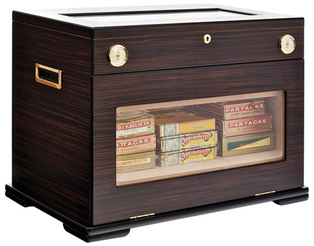 |
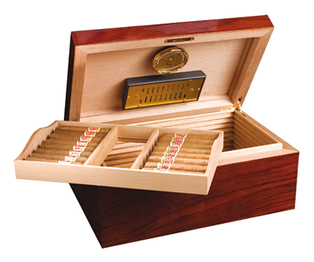 |
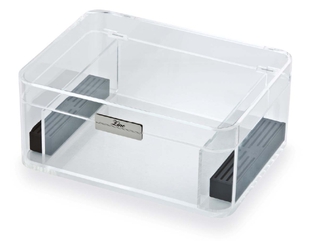 |
The most common humidors are wooden ones. Many types of wood can be used to make these products, but the best is Spanish cedar and Mahogany. In some humidors the Canadian Red Cedar is also used.
These types of wood are preferred because of their characteristics, making sure that they don’t “exude” resins, which do not have intense odors that can damage the aroma of our cigars and because of their ability to store a generous quantity of humidity.
The wooden humidor is a product that uses the raw material of which it is composed to isolate the inside from the outside, creating an environment in which no light enters and there are no sudden changes in temperature.
Some humidors emit strong smells of wood and resin. This is due to inadequate use of wood and above all of young wood, which still has a pronounced smell. Often adhesives are also used to produce it in less time and these also contribute in a negative way, giving the humidor a marked odor, that should not be there. Cigars, even if they have an intense aroma, easily absorb odors present in the environment and if a humidor is perfumed, even cigars will be affected by this.
This type of humidor usually has a wooden frame and glass finishes, almost always in the upper part. This allows you to see the content of the humidor without having to open it.
This last aspect is very important and must be taken into account when buying a humidor. Very often, in fact, you can see cheap products with a considerable use of glass (which replaces wooden walls). However, these types of humidors present greater problems. First of all, they can store a smaller quantity of humidity, than humidors completely made out of wood (consequently even maintaining the desired humidity level is more difficult to obtain). Furthermore, the glass, being transparent, can create a mini greenhouse effect, if the humidor is exposed to direct sunlight. Therefore humidors with little glass and more wood are preferred.
The plexiglass humidors generate some perplexity in many smokers. Accustomed to seeing these products completely in wood, one sometimes remains puzzled when there are humidors made of completely different materials. It should be emphasized that these types of humidors, like jars, are products that can maintain the desired level of humidity without problems. The only difference is that, as there is no wood that absorbs and releases moisture, the humidor must be very carefully humidified, otherwise you risk having significant changes in humidity that can be very harmful for the cigars.
Another fundamental factor, to pay close attention to, is that these humidors are not built with an insulating material, such as wood, and also light can pass through plexiglass. They should therefore be kept away from a direct sunlight, which would create a small greenhouse effect. In addition, the direct sunlight causes chromatic alterations, in the medium-long term, on the wrapper of the cigars.
In the case of small humidors, or table humidors, you should pay attention to not completely fill the entire available space. This cancels the air circulation inside the humidor, creating areas with a considerable difference in humidity. The cigars next to the humidifier will be excessively damp, while the distant ones will not be humidified! It is advisable not to occupy more than 75-80% of the available space. When more than half of the humidor is filled, it is also advisable to rotate the cigars from time to time (once a month is sufficient), so as to have all the cigars humidified at the desired rate.
GUIDE TO BUYING A TRADITIONAL HUMIDOR: WHAT ARE THE CHARACTERISTICS THAT A HUMIDOR MUST HAVE?
There are some characteristics that a humidor must have in order to store the cigars correctly and preserve their organoleptic characteristics.
- hermetic closure: the humidors (excluding jars) do not have a perfectly hermetic closure. However, there are numerous humidors that come close. A characteristic to look for is the so-called “bellows” closure, that is, if after opening the humidor the lid is closed again, you should not hear a loud noise but a sort of breath of air. This means that the humidor is properly closed.
- absence of strong odors: opening the humidor and sniffing the inside, there must be a slight smell of wood present, nothing more. If pungent odors are perceivable, we are faced with a product that could affect the flavors of the cigar.
- trays / shelves for ventilation: many table humidors have trays inside them. These are essential if the humidor has a capacity of more than 70-80 cigars. This allows for greater air circulation and avoids having to perform the monthly rotation of the cigars, ensuring an even humidity level throughout the humidor.
- quality hygrometer: hygrometers are installed in almost all cheap humidors that do not work properly. This is very harmful for the conservation of cigars, as if you do not immediately notice that the hygrometer is not working properly, you end up excessively humidifying the cigars, or drying them out by not humidifying them enough. Furthermore, the purchase of a hygrometer at a later date does not make these humidors products that really save you money.


